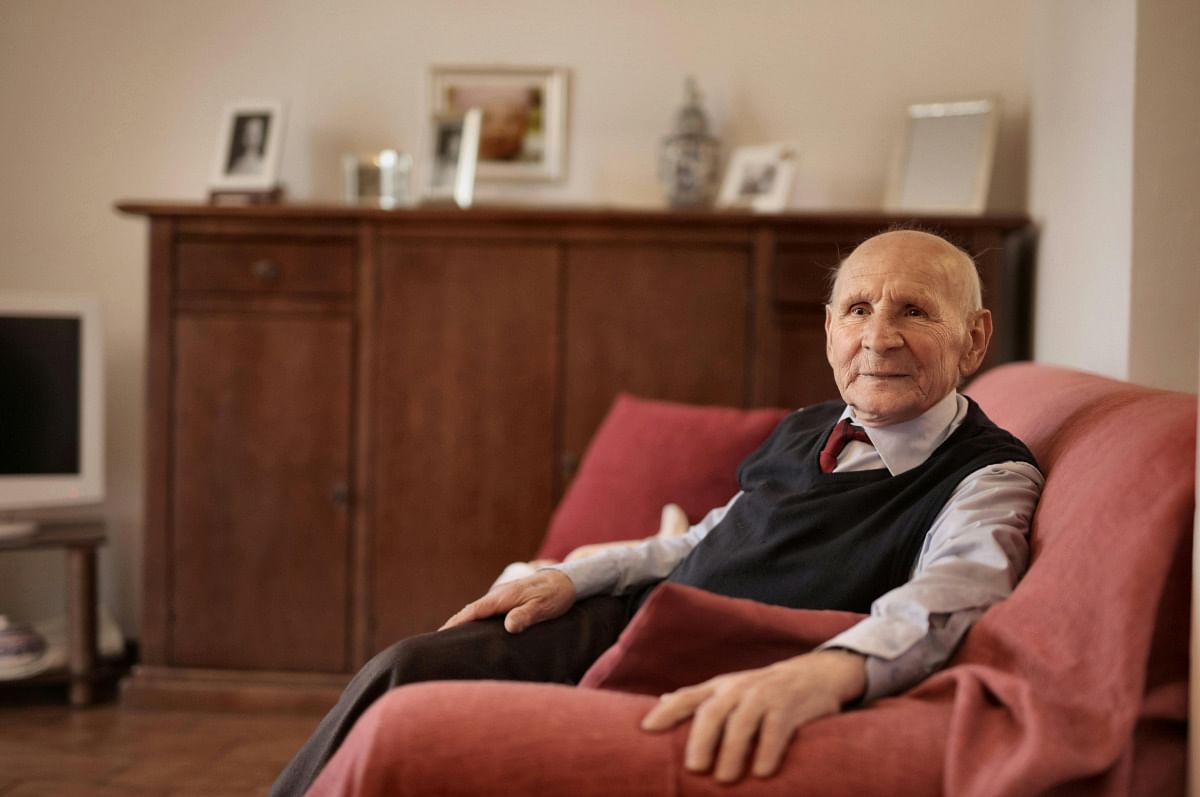How long is Hospice Care?
Families often ask this question during one of the most stressful moments of life, and the honest answer contains a range rather than a single number, because each person’s health, goals, and support needs evolve at a different pace. The good news is that hospice is designed to meet you where you are, whether support is needed for several weeks or many months, while keeping the focus on comfort, dignity, and time together.

What Does Hospice Care Mean?
Hospice is specialized care for people living with a serious illness when the goal shifts from cure to comfort, emphasizing quality of life through expert symptom control, emotional and spiritual support, and practical help for caregivers. The care typically occurs at home or in a homelike setting, and it brings together nurses, aides, social workers, chaplains, and volunteers who coordinate closely with your physician to align treatment with your values.
The Short Answer: Hospice Often Lasts Months, Not Days
Many people picture hospice as something that begins in the final days, yet a significant number of patients benefit for much longer, because earlier enrollment opens the door to consistent pain management, fewer crises, and steadier caregiver support. When families start hospice at the first appropriate moment, they generally experience fewer emergency room visits, more settled routines, and a smoother path through the most challenging symptoms.
What Does “Six Months or Less” Actually Mean?
Eligibility for hospice typically requires a physician’s clinical judgment that, if the illness runs its usual course, life expectancy is six months or less. That phrase does not function like a countdown clock, because predicting health turns remains an inexact science that mixes medical evidence with individual variability. Some people live longer than six months, while others decline more quickly, and hospice flexes accordingly by adjusting the plan of care over time.
The six-month standard frames initial eligibility, yet it does not limit the total time someone can receive hospice. If a clinician continues to certify that the person’s condition remains terminal and the decline persists, coverage can be renewed. In real life, that means hospice may continue for as long as eligibility is met, whether a few weeks or many months.
How Do Benefit Periods and Recertification Work?
Most insurance plans, including Medicare, organize hospice into benefit periods, starting with two 90-day periods followed by an unlimited number of 60-day periods. Before each new period, the hospice physician reviews the person’s status and documents that the illness remains terminal under typical disease progression. A face-to-face clinical encounter usually occurs when entering the third benefit period and at each subsequent recertification, serving as a thoughtful checkpoint to ensure hospice remains the right level of care.
What If Someone Lives Longer Than Six Months?
Longer survival does not automatically end hospice. If the clinical picture still supports a terminal prognosis, services continue through recertification. Occasionally, people stabilize or even improve with the extra support, better nutrition, and consistent symptom relief that hospice provides, and when that happens, a discharge for extended prognosis may occur. Discharge is not a door closing, because hospice can be resumed later if the person’s condition again meets eligibility criteria.
Can Hospice Be Short-Term or Intermittent?
Some individuals receive hospice for a very short time because they enroll close to the end, while others move in and out depending on changes in goals and health status. Families can revoke hospice to pursue curative or disease-directed treatments if priorities shift, and they can return to hospice later if comfort becomes the central focus again. The flexibility supports real life, where medical decisions, family needs, and personal values often evolve.
5 Common Signs It Might Be Time to Consider Hospice
1) Increasing pain, shortness of breath, nausea, or other symptoms that feel harder to control at home.
2) More frequent hospital or emergency room visits that disrupt sleep, routine, and peace of mind.
3) Noticeable weight loss, reduced appetite, or declining strength that limits daily activities.
4) A desire to focus on comfort, time with loved ones, and meaningful moments over additional procedures.
5) Caregiver burnout that makes daily care physically or emotionally overwhelming despite best efforts.

Frequently Asked Questions About Hospice Care
Physicians draw on clinical experience, disease-specific guidelines, functional scales, and the person’s overall trajectory. Trends such as unintentional weight loss, recurrent infections, worsening functional status, and increasing need for assistance inform the picture more than any single snapshot. The goal is not perfect prediction, since no one can guarantee a timeline, but rather a careful, evidence-based judgment that helps families receive the right support at the right time.
Hospice provides continuous, coordinated support that adapts as needs change. Nurses manage medications, teach families what to expect, and fine-tune care plans to keep symptoms controlled. Aides assist with personal care tasks that become more tiring, while social workers guide difficult conversations, connect families with resources, and help navigate practical matters. Chaplains offer spiritual care for people of any faith or none, and volunteers provide companionship, which can soften long days and lighten the load for caregivers.
Illness does not move in a straight line, so hospice includes levels of care to address short-term escalations. When symptoms become difficult to manage at home, general inpatient care or continuous home care may be arranged to control distress and stabilize the situation. Once comfort improves, routine home care resumes, and families often feel more confident knowing a higher level of support exists if a sudden change occurs.
People retain the right to revoke hospice if they chose comfort care but later wish to pursue additional treatments, and they may re-enroll when goals return to comfort-focused care. This option respects individual choice and acknowledges that serious illness can bring new information, shifting priorities, and moments when families revisit what matters most.
Length of service varies widely. Many people receive hospice for one to three months, which allows enough time to optimize symptoms, build trust with the team, and settle into a predictable rhythm at home. A sizable number still begin hospice in the last two weeks of life, often because families wait for absolute certainty, and that means fewer days to benefit from the full scope of services. Earlier enrollment usually correlates with better symptom control and more emotional, spiritual, and practical support.
Anvoi serves families across Louisiana, New Mexico, and Mississippi, where questions about length of care often carry added concerns about travel distance, rural access, work schedules, and extended family responsibilities. Our teams understand these realities and tailor visit frequency, equipment delivery, and caregiver education so that care remains dependable without disrupting school schedules, shift work, or church commitments. The timeline becomes more manageable when families know what help is coming, which medications will arrive, and who to call when something changes at night.
Families frequently notice meaningful relief within the first week because pain regimens are adjusted promptly, equipment is delivered quickly, and education begins on day one. Over the first month, routines settle, anxiety usually eases, and caregivers gain steady confidence in tasks that once felt intimidating, such as repositioning for comfort or using medications before symptoms escalate. The longer runway allows space for conversations, legacy projects, and small rituals that honor a person’s life.
Hospice clinicians monitor and adjust medications, non-drug therapies, and comfort measures over time to prevent problems before they flare. Small changes in appetite, sleep, breathing, or mood trigger proactive tweaks to the care plan, helping families avoid the crisis-to-crisis cycle that often occurs without coordinated support. With consistent follow-up, many people experience more comfortable days and more predictable nights, which becomes the foundation for meaningful time with loved ones.
View our Pain & Symptom Management services.1) Write Down Priorities: Create a short list of goals, such as staying at home, keeping pain controlled, or attending a special event, and share it with the hospice team so care aligns with those aims.
2) Set Up the Space: Arrange a comfortable area with necessary equipment, easy access to medications, and a chair for a helper, which reduces strain and supports rest.
3) Establish Routines: Anchor the day with predictable times for bathing, meals, and gentle activities, and schedule rests so caregivers recover between tasks.
4) Clarify Roles: Decide who manages medications, who coordinates appointments, and who organizes meals or errands, which lowers stress when time feels short.
5) Keep a Symptom Log: Track pain levels, breathing changes, appetite, and sleep, then share the notes during visits so adjustments can happen quickly.
The following are key ideas to keep in mind and make careful note of when wondering if it’s the right time to consider hospice care:
- The illness no longer responds to curative treatments, or additional procedures feel burdensome compared with likely benefits.
- Symptoms disrupt daily life despite best efforts, and hospital trips bring more stress than relief.
- The person spends most of the day resting or needs help with several daily tasks.
- Conversations at home revolve around comfort, time together, and the wish to be in familiar surroundings.
- Caregivers want guidance, training, and a compassionate team available by phone at all hours.
If these statements resonate, a conversation with Anvoi can clarify eligibility and next steps without pressure or obligation.
See our Self-AssessmentVisit frequency reflects changing needs rather than a fixed schedule. Early on, visits may be more frequent while medications are tuned, equipment is delivered, and caregivers learn new skills. Once comfort stabilizes, the pattern often becomes steadier, then increases again if new symptoms appear or energy declines more quickly. Social work and spiritual care follow the same rhythm, stepping in during difficult decisions and stepping back when the family needs quiet.
Medicare, Medicaid, and most private insurers cover hospice for eligible individuals, including medications related to the terminal diagnosis, medical equipment, supplies, and the clinical team’s services. Families may still keep their primary doctor involved, and they are not charged for every phone call or question. Financial conversations happen early so there are no surprises, and the hospice team guides you through paperwork while you focus on the person you love.
Earlier enrollment gives time to control symptoms, educate caregivers, and support emotional and spiritual needs before a crisis strikes, which reduces unnecessary hospitalizations and restores a sense of calm. Families also gain the breathing room needed for practical tasks such as organizing documents, sharing stories, and planning visits, and those small wins add up to more time spent as family rather than as patients and nurses at home.
Uncertainty is normal, and you do not have to solve it alone. A no-pressure consultation helps you understand eligibility, explore goals, and decide whether hospice or palliative care better fits the moment. Many families discover that even if hospice is not appropriate today, practical guidance and anticipatory coaching make tomorrow easier.
Choose Anvoi for Clarity, Comfort, and Next Steps
Choosing hospice is easier when a trusted team explains the timeline plainly, eases symptoms quickly, and supports caregivers consistently. Anvoi serves Louisiana, New Mexico, and Mississippi with local teams who understand regional resources, cultural traditions, and family rhythms, and who adjust the plan to match what you value most. If you are asking how long hospice care lasts, you likely need clarity, not guarantees, and that is exactly what we provide through careful assessment, thoughtful planning, and compassionate presence. Start a conversation with Anvoi today, share your goals and worries, and let us help you build a plan that makes the most of the time ahead, whether your path lasts weeks or months.
Local Realities in Louisiana, New Mexico, and Mississippi
Anvoi serves families across Louisiana, New Mexico, and Mississippi, where questions about length of care often carry added concerns about travel distance, rural access, work schedules, and extended family responsibilities. Our teams understand these realities and tailor visit frequency, equipment delivery, and caregiver education so that care remains dependable without disrupting school schedules, shift work, or church commitments. The timeline becomes more manageable when families know what help is coming, which medications will arrive, and who to call when something changes at night.










